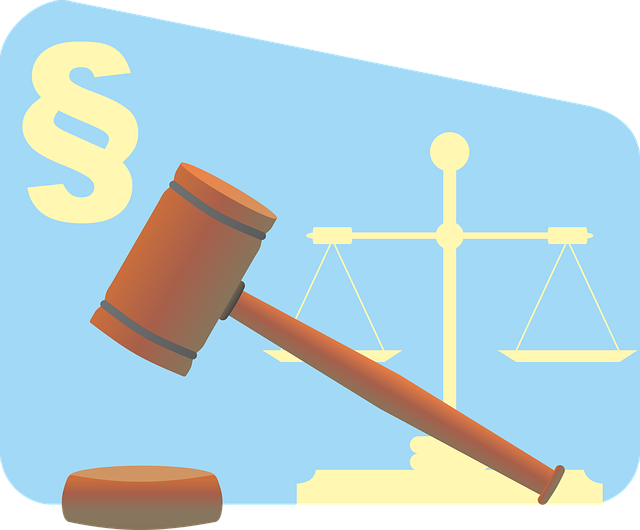Consumer protection laws are vital for businesses to safeguard operations and trust. Adhering reduces risks and defends against costly libel claims, impacting smaller firms significantly. Staying informed about regulations and employing robust defense strategies is crucial. The high cost to defend against such claims highlights the importance of initial risk management and ethical practices, minimizing legal exposure and building trust.
Consumer protection suits pose a significant challenge for businesses, balancing the need to protect consumers with maintaining profitable operations. This article delves into the intricacies of consumer protection laws, exploring strategies for defending against such claims while examining the financial burden associated with defending against libel claims. We also weigh the delicate balance between business interests and consumer rights, offering insights into navigating this complex landscape.
- Understanding Consumer Protection Laws
- Strategies for Defending Against Suits
- The Financial Burden: Cost to Defend
- Balancing Business Interests and Consumer Rights
Understanding Consumer Protection Laws
Understanding Consumer Protection Laws is a crucial step for businesses to safeguard their operations and maintain customer trust. These laws are designed to protect individuals from unfair or misleading practices, ensuring that businesses operate transparently and responsibly. By adhering to consumer protection regulations, companies can mitigate potential risks and avoid costly legal battles. One significant aspect often overlooked is the financial burden of defending against claims, such as libel, which can significantly impact a business’s bottom line, especially for smaller enterprises.
The cost to defend Against Libel Claim can be substantial, involving legal fees, court expenses, and time away from core business activities. Therefore, businesses must remain vigilant in their compliance efforts, not only to avoid these direct financial losses but also to protect their reputation within the philanthropic and political communities. Moreover, with the ever-evolving landscape of consumer protection, staying informed about white collar and economic crimes is vital for navigating the respective business environments successfully.
Strategies for Defending Against Suits
When faced with consumer protection suits, businesses must employ robust strategies to defend against allegations. The first step involves a thorough investigation to understand the nature and validity of the claims. This includes reviewing relevant documents, interviewing key personnel, and gathering evidence that refutes or mitigates the accusations. Legal experts recommend proactively communicating with plaintiffs early in the process to assess the merit of their case, which can help in deciding whether settlement negotiations are feasible or if a court battle is necessary.
A strong defense strategy should also focus on differentiating between legitimate consumer complaints and baseless suits. For instance, companies with an unprecedented track record of satisfying corporate and individual clients across the country might find it easier to demonstrate their integrity and fairness. By presenting solid evidence of ethical business practices, they can deter frivolous claims and significantly reduce the cost to defend against libel allegations.
The Financial Burden: Cost to Defend
When faced with consumer protection suits, businesses often shoulder a significant financial burden, primarily due to the cost to defend against libel claims. These legal battles can be lengthy and complex, requiring extensive resources for legal representation, expert witnesses, and extensive document review. The expense is not just monetary; it also involves a substantial investment of time and strategic focus, which could otherwise be allocated to core business operations.
Moreover, the potential consequences extend beyond the immediate cost to defend. Failure to navigate these suits effectively can lead to costly settlements or, in extreme cases, a jury trial where damages awarded can cripple even the most robust businesses. Therefore, proactive measures and robust legal strategies are essential to avoiding indictment and ensuring a complete dismissal of all charges, thereby safeguarding both financial stability and business reputation.
Balancing Business Interests and Consumer Rights
In the pursuit of consumer protection, a delicate balance must be struck between safeguarding consumer rights and preserving business interests. Consumer protection lawsuits aim to hold companies accountable for any misleading practices or unsafe products, ensuring consumers are not taken advantage of. However, businesses also face significant challenges when defending against such suits, often incurring substantial legal costs, including the expense of a general criminal defense strategy. The cost to defend against libel claims can be staggering, making it crucial for businesses to implement robust risk management strategies and ethical business practices from the outset.
Avoiding indictment across the country is not just about legal strategy; it reflects a company’s commitment to transparency and integrity. By proactively addressing consumer concerns and implementing fair practices, businesses can minimize their exposure to lawsuits and the associated financial burden. This proactive approach not only protects against legal repercussions but also builds trust with consumers, fostering a positive reputation that can be invaluable in today’s competitive marketplace.
Consumer protection suits pose a significant challenge for businesses, balancing essential rights and responsibilities. Understanding both consumer protection laws and effective defense strategies is crucial to mitigating risks. While the financial burden of defending against such claims can be considerable, as seen in the cost to defend against libel claims, proactive measures and a nuanced approach to business practices can help protect interests while upholding consumer rights. This delicate equilibrium ensures a fair and competitive marketplace for all stakeholders.






